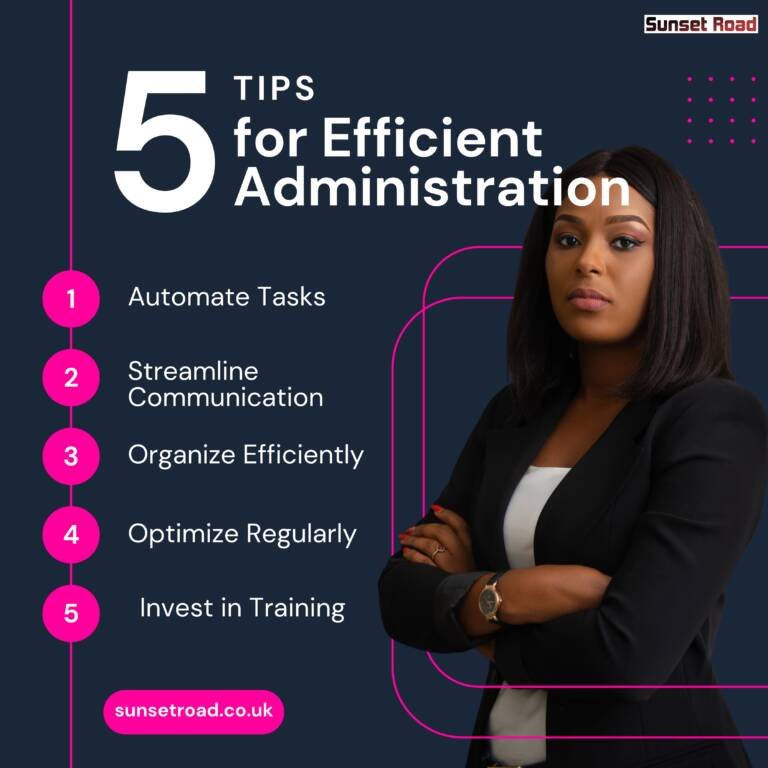How Virtual Assistants Can Save UK Companies Time and Money

In today’s fast-paced business environment, companies are always on the lookout for innovative ways to enhance efficiency, save time, and reduce operational costs. One of the most effective solutions to emerge over the past decade is virtual assistance. Virtual assistants (VAs) have become a key tool for businesses of all sizes to manage day-to-day operations more efficiently. This blog explores how virtual assistants can save UK companies time and money by improving workflow, reducing overheads, and delivering flexible, on-demand support.
What is a Virtual Assistant?
A virtual assistant is a professional who provides administrative, technical, or creative assistance to businesses or entrepreneurs remotely. Instead of working in the office, virtual assistants perform their tasks online, using various digital communication tools such as email, instant messaging, and video conferencing. VAs can handle a wide range of responsibilities, from managing emails and scheduling appointments to handling social media accounts, bookkeeping, and even customer service. In the UK, where businesses are increasingly moving towards flexible and remote work setups, virtual assistants have become a game-changer. Companies can now outsource essential tasks without having to deal with the costs and logistics of maintaining a full-time in-house staff.
The Financial Benefits of Virtual Assistants
- Reduced Payroll Costs –One of the most significant ways virtual assistants save companies money is by reducing payroll costs. Traditional employees come with many associated expenses beyond just their salaries—pension contributions, national insurance, paid leave, sick days, and other benefits. For small businesses or startups, these added costs can quickly add up and become overwhelming. With virtual assistants, UK businesses only pay for the hours worked or services rendered. This eliminates the need for full-time salaries and associated employee benefits, significantly reducing overhead costs. A company may hire a VA for a specific project or on a part-time basis, allowing them to only pay for what they need. For example, a small e-commerce business may hire a virtual assistant to manage customer queries during peak seasons like Christmas or Black Friday.
- Lower Office and Infrastructure Costs –Hiring in-house staff requires office space, computers, office supplies, and utilities like electricity and heating. These operational expenses can take a large chunk out of a company’s budget. However, since virtual assistants work remotely, companies do not need to provide them with a physical workspace or equipment. VAs typically use their own devices, software, and internet, resulting in significant savings for the employer. For instance, a London-based company could avoid paying the high costs of office rent by using virtual assistants for administrative tasks. Many businesses in the UK’s major cities have realized the potential savings from not having to maintain a large office space for staff, especially when remote work has become so accessible and effective.
- Access to Global Talent- One of the key advantages of virtual assistants is the ability to tap into a global talent pool. UK businesses no longer have to limit their hiring to local candidates. Virtual assistants can be hired from anywhere in the world, often at lower rates than those within the UK. For instance, a UK company might hire a virtual assistant from South Asia or Eastern Europe, where hourly rates are generally lower, without sacrificing the quality of work. This access to global talent not only saves money but also allows companies to operate across different time zones. A business in the UK can hire a virtual assistant from another part of the world to provide 24/7 customer service, giving the business a competitive edge in terms of responsiveness and availability.
The Time-Saving Benefits of Virtual Assistants
- Increased Focus on Core Business Functions-Many business owners in the UK spend a significant portion of their day on routine administrative tasks such as answering emails, scheduling meetings, or managing paperwork. While these tasks are essential, they can be time-consuming and detract from more important functions like strategy, business development, and client relations. By delegating these routine tasks to a virtual assistant, business owners can free up valuable time and focus on core activities that drive growth and innovation. For example, a marketing agency in Manchester might use a virtual assistant to manage client communications and invoicing, allowing the agency’s directors to focus on creative strategy and campaign execution.
- Faster Response Times – One of the key challenges for many businesses is maintaining fast response times, particularly in customer service. Delayed responses to customer inquiries or internal communications can lead to dissatisfaction and lost opportunities. Virtual assistants can bridge this gap by handling communications promptly, ensuring that customers are attended to without delay. For example, an online retailer might hire a virtual assistant to manage customer support tickets. This would allow the business to provide timely responses and resolutions to customer issues, improving customer satisfaction and retention rates.
- Streamlining Processes and Automation – Virtual assistants are skilled in using various digital tools and platforms to streamline business processes. Many VAs are proficient in using project management tools, CRM systems, and automation software, which can save companies significant amounts of time. For example, a virtual assistant could use automation tools like Zapier to integrate different business systems, allowing tasks like invoicing, social media posts, or email marketing campaigns to be triggered automatically. This not only speeds up workflow but also reduces the margin for human error.
Examples of How UK Companies Are Benefiting from Virtual Assistants
- Small Business Owners – Small business owners in the UK are among the biggest beneficiaries of virtual assistance. For example, a boutique owner in Edinburgh may not have the resources to hire full-time administrative support. Instead, they can hire a VA to handle tasks like stock management, social media promotion, and customer inquiries during busy periods. This flexibility enables small business owners to keep overhead costs low while still maintaining high levels of productivity and customer service. Many small business owners also benefit from virtual assistants’ expertise in areas like SEO, content marketing, or social media management—services that they may not have the time or skill set to handle themselves.
- Startups and Entrepreneurs – For UK-based startups, time and resources are often limited. Virtual assistants offer a cost-effective solution for handling essential tasks, enabling entrepreneurs to focus on scaling their business. For instance, a London tech startup might use a virtual assistant to manage their social media profiles, ensuring that the company maintains an active online presence without the founders needing to handle these tasks themselves. By outsourcing non-core activities, startups can focus their energy on product development, client acquisition, and investor relations. This can be especially beneficial in the early stages when time is a valuable asset and must be allocated wisely.
- Mid-Sized Companies – Mid-sized companies in the UK are also seeing the benefits of using virtual assistants. These companies may already have in-house staff but find that certain departments are overburdened during busy periods. Virtual assistants can step in to provide additional support as needed. For example, a digital marketing firm in Birmingham may hire a virtual assistant to help with data entry, lead generation, or report preparation. This ensures that the firm’s full-time staff can focus on more strategic initiatives, while the VA handles the time-consuming administrative tasks.
Flexible and Scalable Support for Growing Businesses
As businesses grow, their needs often change. One of the most attractive features of virtual assistants is the flexibility they offer. Unlike full-time employees, virtual assistants can be hired on a project-by-project basis, on retainer, or on an hourly rate, depending on the company’s needs. For instance, a company experiencing a temporary surge in workload can hire a virtual assistant for short-term support, avoiding the long-term commitment and costs associated with permanent employees. Similarly, a growing company can easily scale its use of virtual assistants, hiring additional VAs as needed to keep pace with increased demand.
Conclusion
The rise of virtual assistants has opened up a world of possibilities for UK companies looking to save time and money. By reducing payroll and office costs, tapping into global talent, and streamlining operations, businesses can significantly improve efficiency and reduce expenses. For small businesses, startups, and even mid-sized companies, the flexibility and scalability offered by virtual assistants are invaluable, allowing them to focus on growth and innovation. As remote work continues to gain traction, the demand for virtual assistants is only set to increase. UK companies that embrace this trend will be well-positioned to stay competitive, agile, and cost-efficient in an ever-evolving business landscape.










